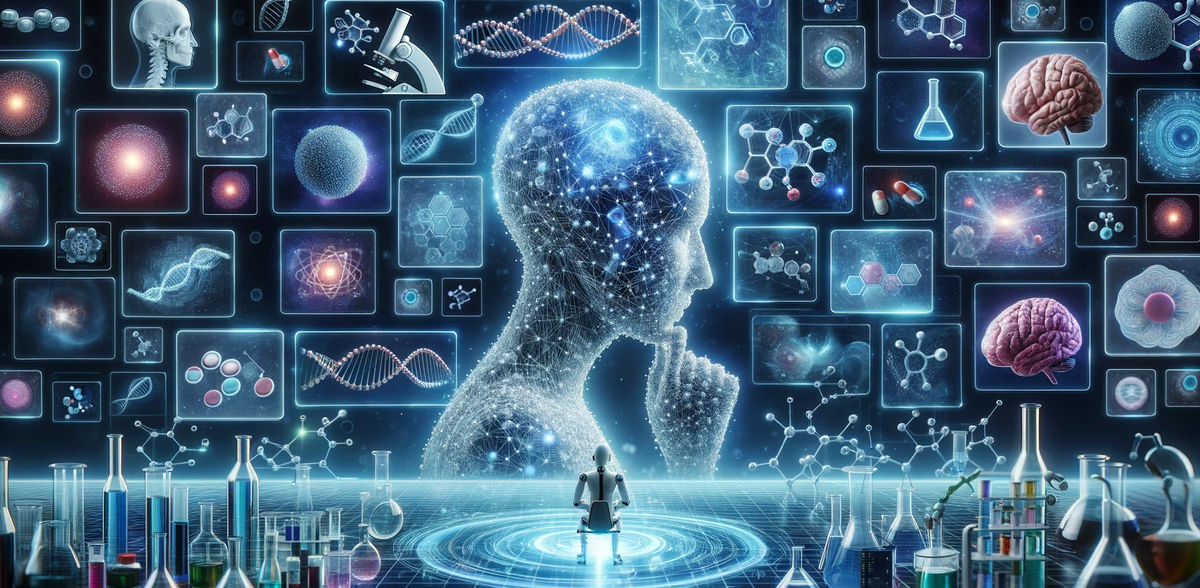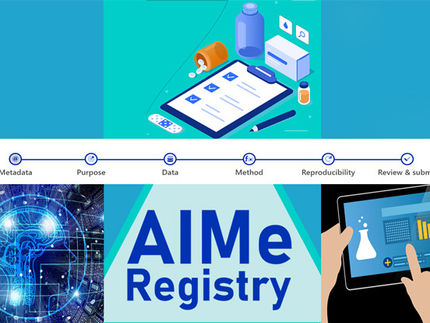Artificial intelligence predicts the future of artificial intelligence research
AI algorithm predicts the direction in which your research field is likely to evolve
It has become nearly impossible for human researchers to keep track of the overwhelming abundance of scientific publications in the field of artificial intelligence and to stay up-to-date with advances. Scientists in an international team led by Mario Krenn from the Max-Planck Institute for the Science of Light have now developed an AI algorithm that not only assists researchers in orienting themselves systematically but also predictively guides them in the direction in which their own research field is likely to evolve. This work was published in the journal Nature Machine Intelligence.
In the field of artificial intelligence (AI) and machine learning (ML), the number of scientific publications is growing exponentially and approximately doubling every 23 months. For human researchers, it is nearly impossible to keep up with progress and maintain a comprehensive overview. Mario Krenn, research group leader at the Max-Planck Institute for the Science of Light in Erlangen, approaches the solution to this challenge in an unconventional way. He has developed a new graph-based tool, 'Science4Cast,' which allows for posing questions about the future development of AI research.
Prior to this, the international research group had announced the 'Science4Cast' competition with the aim of capturing and predicting the development of scientific concepts in the field of AI research, determining which topics will be the focus of future research. More than 50 contributions with different approaches were submitted. Krenn, together with the top-ranking teams, has now examined the various methods applied, ranging from purely statistical to purely learning methods, and arrived at surprising results. 'The most effective methods use a carefully curated set of network features and not a continuous AI approach,' said Mario Krenn. This suggests significant potential that can be unlocked using pure ML approaches without human knowledge.
Science4Cast is a graph-based representation of knowledge which becomes more complex over time as more scientific articles are published. Each node in the graph represents a concept in AI, and the connections between nodes indicate whether and when two concepts were studied together. For example, the question 'What will happen' can be described as a mathematical question about the further development of the graph. Science4Cast is fed with real data from over 100,000 scientific publications spanning a 30-year period, resulting in a total of 64,000 nodes.
However, predicting what researchers will work on in the future is just a first step. In their work the researchers describe how further development of Science4Cast could soon provide personalized suggestions for individual scientists regarding their future research projects. 'Our ambition is to develop a method that serves as an inspiration source for scientists - almost like an artificial muse. This could potentially accelerate the progress of science in the future' explains Krenn.
Original publication
Mario Krenn, Lorenzo Buffoni, Bruno Coutinho, Sagi Eppel, Jacob Gates Foster, Andrew Gritsevskiy, Harlin Lee, Yichao Lu, João P. Moutinho, Nima Sanjabi, Rishi Sonthalia, Ngoc Mai Tran, Francisco Valente, Yangxinyu Xie, Rose Yu, Michael Kopp; "Forecasting the future of artificial intelligence with machine learning-based link prediction in an exponentially growing knowledge network"; Nature Machine Intelligence, 2023-10-16
Most read news
Original publication
Mario Krenn, Lorenzo Buffoni, Bruno Coutinho, Sagi Eppel, Jacob Gates Foster, Andrew Gritsevskiy, Harlin Lee, Yichao Lu, João P. Moutinho, Nima Sanjabi, Rishi Sonthalia, Ngoc Mai Tran, Francisco Valente, Yangxinyu Xie, Rose Yu, Michael Kopp; "Forecasting the future of artificial intelligence with machine learning-based link prediction in an exponentially growing knowledge network"; Nature Machine Intelligence, 2023-10-16
Organizations
Other news from the department science

Get the life science industry in your inbox
By submitting this form you agree that LUMITOS AG will send you the newsletter(s) selected above by email. Your data will not be passed on to third parties. Your data will be stored and processed in accordance with our data protection regulations. LUMITOS may contact you by email for the purpose of advertising or market and opinion surveys. You can revoke your consent at any time without giving reasons to LUMITOS AG, Ernst-Augustin-Str. 2, 12489 Berlin, Germany or by e-mail at revoke@lumitos.com with effect for the future. In addition, each email contains a link to unsubscribe from the corresponding newsletter.
Most read news
More news from our other portals
Last viewed contents
Anthophyllite
Octave_Crouzon
B₀
Eye_tracking
Cell_nucleus
Right_ventricle
Aminolevulinic_acid_synthase
Propionibacterium_acnes























































